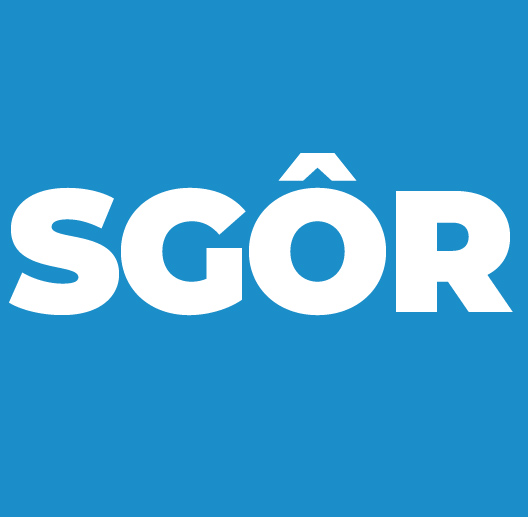Indirect marketing is about finding ways to market your product or service without being too obvious. While this may not sound as exciting as direct marketing, it can be a highly effective way of advertising. When you’re trying to grow a business, it can be scary to commit to a large budget for advertising. But with indirect marketing, you have the power of social media and word-of-mouth on your side. Here are some ways that indirect marketing can help your business thrive in today’s digital world!
Indirect marketing is about creating bonds with your potential customers by using indirect marketing campaigns in less aggressive types of marketing, meaning you’re not spending a lot of time on sales calls, email marketing campaigns and other forms of direct marketing tactics.
Benefits of indirect marketing

To be successful in a competitive market, you need a marketing strategy that is cost-effective and can reach your target audience. With indirect marketing, you have those two things.
In addition to being cost-effective, indirect marketing tactics is also great for targeting your ideal customer. In traditional advertising, it can be difficult to find specific groups of people who are interested in your product or service. But with indirect marketing, you’re able to use the power of social media channels and word-of-mouth to get the word out about what you’re selling, with new and exciting ways of doing so such as influencer marketing, or providing valuable content through blog posts online.
With indirect marketing, you’ll also be able to reach a wider range of people than traditional methods like print advertising and television ads. You’ll gain access to more people without having to spend as much money. It’s one of the best ways to grow your business because it helps you reach an audience that may not otherwise see your ad campaign!
Unlike traditional marketing techniques, indirect marketing also focuses heavily on customer loyalty and communication with customers, wanting to understand the needs of target customers and how audience attention and audience trust can be increased.
What is direct marketing?

Direct marketing is advertising or marketing your brand directly to your intended audience. You’ll likely see direct marketing in the form of billboards, TV commercials, and radio ads. It can often be considered the traditional approach to marketing, making it known to the customer by advertising boldly. Most companies who preform direct marketing typically have an advertising budget of which they have considered with their advertising agency, this agency would then recall all advertising analytics and estimate an advertising return on investment and advertising revenue to provide opportunities of further advertising, with money and ROI the main approach to distribution.
It’s important to note that direct marketing is not always effective for all businesses. For example, if you’re in a service-based business that deals with customers on a one-on-one basis, then it might not be worth it for you to use large marketing campaigns to reach new customers. Direct marketing can also be expensive and difficult to implement effectively.
Benefits of direct marketing
Direct marketing is often the most economical way to advertise. It’s easy to distribute your advertising material to a wide range of people who are interested in your product or service.
Direct marketing also allows you to make real-time adjustments with the changes in your audience. You can see how many people are responding or not responding to your advertisement and make adjustments accordingly.
Of course, direct marketing comes with its own set of risks. When you’re spending a lot on advertising, you have that much more potential for backlash. If someone has an issue with your product or service, they may post negative reviews online about it, you may not have return on investment on your advertisements due to level of customer satisfaction. Perhaps you find that your marketing efforts are too strong, and customers are feeling pressured to purchase?
Indirect marketing is less risky than direct marketing because you have social media at your fingertips during any time of day or night! Indirect marketing is also great for small businesses because it requires less commitment on behalf of potential customers, so they’re more likely to take action when they feel comfortable enough about the product or service being offered.
The right channel for the right message

Indirect marketing is sometimes referred to as word-of-mouth marketing. It’s an old marketing technique that relies on the power of social media and word-of-mouth to help spread your message.
Social media platforms are great for indirect marketing. Using platforms like Facebook, Twitter, Instagram, or Snapchat can be a cheap way to get your message out there, not to mention a form of advertising that you know your customers will be using. By using these platforms, you’re able to reach people with similar interests without having to spend too much money on advertising. You can also use these platforms for more creative marketing ideas like influencer outreach or live streaming events with your target audience in mind.
Finding the right channel for your advertising strategy doesn’t necessarily need to be difficult, there are countless social media platforms for small businesses, large businesses or anyone in between. Understanding where your target audience are will help you decide on your distribution channels and distribution strategy during indirect advertising. Once you’ve chosen the platforms you intend to showcase your social media expertise on, you can begin forming a long-lasting relationship with your consumer base, do this through creating the right message with relevant content, direct communication, and subtle affiliate marketing and promotional campaigns
What is content marketing

“Content marketing is a type of marketing strategy that focuses on creating and distributing valuable, relevant, and consistent content to attract, engage, and retain a loyal audience or customers.”
This definition is incredibly vague, but it’s enough to get you started. Content marketing works by publishing original content on your website or blog that relates to your target market. When done correctly, content marketing can help you establish authority with your target market. If done incorrectly, content marketing can be ineffective at best or offensive at worst.
One thing that makes content marketing effective is that businesses are able to create their own unique style through the use of infographics, video shares, podcasts, blogs etc. It becomes easy for customers to feel connected with brands they admire when they’re presented with content they can relate to. Not to mention if a customer is already on one of your social media channels or on your website.
But remember: You have two audiences in mind when you create your content- the customer base you are trying to reach through your website or blog as well as the mass audience waiting for something new to read every day.
With an array of content types it may be hard to come up with a basic idea for your content approach, you want to produce an advanced blog that answers the average consumer questions, draw in new target consumers and offer engaging content that is consistent with what customers expect from your brand. Doing so can take time, research and patience, listen to what your customers want, explore questions and FAQs online to see if there are audience segments that feel unheard or have yet to receive answers to their questions, look for ways that you can help.

